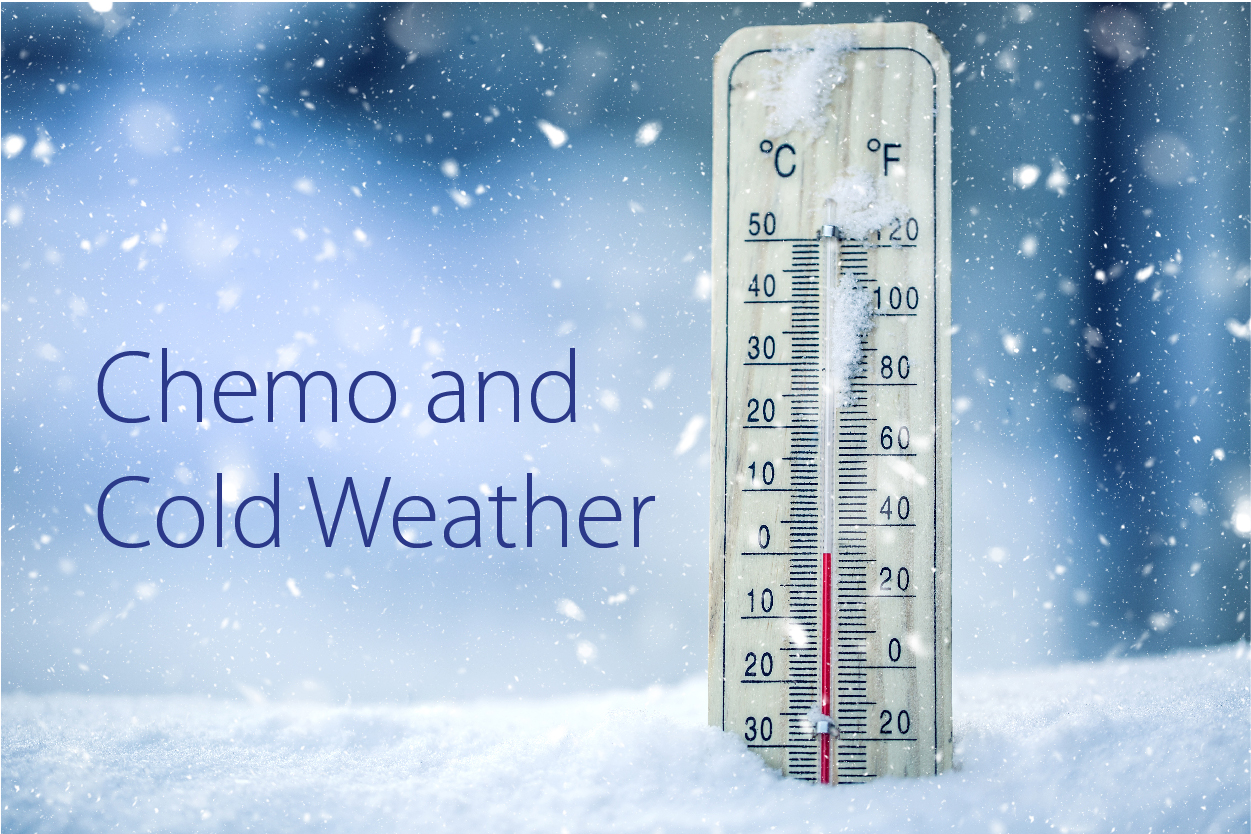Chemo and Cold Weather: What You Need to Know
The side effects of chemotherapy, a typical course of treatment for those battling cancer, can leave patients more vulnerable to winter weather dangers. Take a look at these concerns you should be aware of for the cancer patient in your life and how to keep them safe and comfortable:
Hypothermia
Some of the side effects of chemotherapy include fatigue, dehydration, and anemia. These side effects can all make you more sensitive to the cold and more susceptible to hypothermia, a dangerous condition where your body loses heat quicker than it can produce, leading to potentially deadly low body temperatures.
Frostbite
Sometimes, on the other hand, chemotherapy can leave you less sensitive to the cold, leading to a condition called peripheral neuropathy, a condition characterized by a decreased sensation in the hands and feet. As a result, it can be challenging to identify how cold it is and put you at risk of developing frostbite, the freezing of the skin and underlying tissue.
Slips and Falls
Peripheral neuropathy can also make you unsteady on your feet, so accidental falls and slips are more likely. These individuals are even more likely to fall on snow and ice, so it's essential to be careful and walk with care. Individuals with blood cancers, such as leukemia, are also at risk of developing a condition called thrombocytopenia, where the body has a lower than average platelet count in the blood. As a result of this condition, a slip or fall can lead to more severe bruising or bleeding than usual.
Tips for Staying Safe
If you are undergoing cancer treatment, utilize these helpful tips to ensure your safety from the dangers of winter weather:
● Dress in warm layers - Wear layers of clothing to keep you warm at all times, indoors and outdoors. Don’t forget to utilize your warm accessories such as gloves, hats, scarves, and more.
● Wear proper boots/shoes - Your footwear should be warm, fit well, and have good traction on the bottom.
● Keep your walkways and driveway is clear - Have someone shovel, snow blow, or plow your walkways and driveway to get rid of any snow or ice that can cause a fall.
● Be mindful of how you step - If you can’t avoid walking through snow or over ice, take short, flat-footed steps.
● Ask for help - Don’t be afraid to rely on your loved ones for help, care, and guidance on handling the winter elements. And be sure to accept any support that is offered to you!


